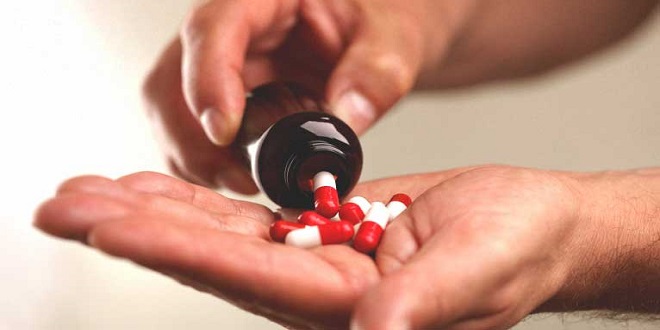
Could a pill, a drink, or a supplement bar replace your dinner For all those who enjoy the pleasure of eating, there’s good news. The answer is unequivocally “no”! Only food can provide the mixture of vitamins, minerals, phytonutrients, and other substances for health—qualities that can’t be duplicated with dietary supplements alone.
Fortunately for most Americans, there’s plenty of quality, quantity, and variety in the food marketplace. Despite this fact, more than half of Americans take dietary supplements, making it a business of $20.8 billion per year in 2005—and growing! Some people are prudent with their use, limiting the potency of their supplement to 100 percent or less of the Daily Values (DVs) and taking just the recommended dose.
For others, supplements are part of or a complement to their medical care—as guided by their healthcare providers. Others self-prescribe high, potentially dangerous dosages of supplements, often at the advice of a friend or the media—not their healthcare provider. Why do many consumers take dietary supplements The reasons are varied—many times medically valid, sometimes not. In low or appropriate dosages, some supplements offer health benefits under some circumstances.
Some people use supplements with good intention: perhaps in search of protection from or a remedy for health problems such as depression, aging skin, cancer, or arthritis. Still others seek added benefits: perhaps better athletic performance.
Supplements—Truth or Myth?
Misconceptions about dietary supplements are rampant. Even though consumers with these beliefs buy supplements, every statement is false! 1. Fact: No dietary supplement can fix an ongoing pattern of poor food choices. Supplements may suply some vitamins and minerals, but not all the substances that food supplies for your optimal health. Only a varied and balanced eating pattern provides enough nutrient variety, phytonutrients, and other substances for health.
If you eat right, you probably don’t need a daily supplement. 2. Fact: No scientific evidence in humans proves that a very high dosage of vitamin and mineral supplements prevents, treats, or cures cancer or other chronic illnesses. An extra amount of vitamin C won’t prevent colds and flu, although it may reduce the symptoms.
Some antioxidant nutrients, taken in higher dosages, may have protective effects, but research is still preliminary. See “Antioxidant Vitamins: A Closer Look” in chapter 4. 3. Fact: It would be great, but boosting your nutrient intake won’t cause your cells to produce extra energy or more brain power. Only three nutrients— carbohydrates, fats, and proteins—supply energy or calories.
Last word
Vitamins don’t. Although B vitamins do help body cells produce energy from the three energy nutrients, they don’t produce energy themselves. 4. Fact: Many powerful drugs and toxic chemicals are plant-based. Varieties of mushrooms can be classified as “culinary delicious” or “deadly dangerous.” In the same vein, herbal supplements should be used with caution! 5.
Fact: Emotional stress doesn’t increase nutrient needs. Any claims promoting dietary supplements to “de-stress” your life are misleading, too. The best dietary advice to meet the physical demands of stress: a varied, balanced eating plan. More “destressing” advice: stay active, get enough rest, and take some personal time out to relax. 6. Fact: Athletes and other physically active people need about the same amount of nutrients as others do—just more energy, or calories, for the increased demands of exercise. The extra amount of food that active people eat supplies the very small amount of extra vitamins for energy production, too. Although protein needs are somewhat higher for some athletes, especially for those in strength-training sports, food can easily provide the extra. On another note, physical activity, not extra amino acids (protein), builds muscle. For more on nutrition for athletes and ergogenic aids, see chapter 19, “Athlete’s Guide: Winning Nutrition.” 7. Fact: Dietary supplements won’t protect you from the harmful effects of smoking or alcohol abuse. Here’s the real scoop.





